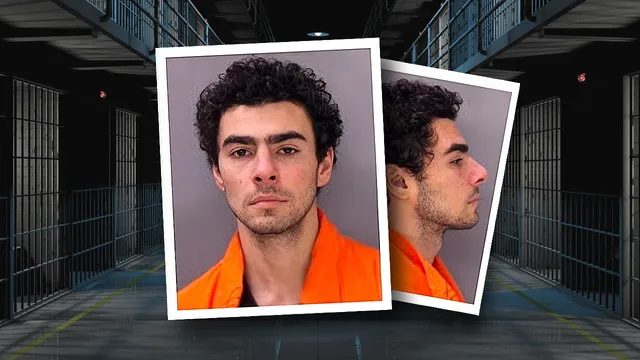
Luigi Mangione faces charges for murdering UnitedHealthcare CEO
2025-05-02 00:00- In December 2024, Luigi Mangione allegedly shot UnitedHealthcare CEO Brian Thompson during a conference.
- Following the murder, Mangione fled New York, leading to his arrest in Pennsylvania after being recognized by a McDonald's manager.
- Prosecutors are pursuing the death penalty while rejecting claims of improper conduct during Mangione's arrest.
Express your sentiment!
Insights
In December 2024, a significant event unfolded in New York when Luigi Mangione allegedly shot and killed UnitedHealthcare CEO Brian Thompson. The incident occurred outside the Hilton hotel in Midtown Manhattan as Thompson was attending an investors' conference. Prosecutors believe that Mangione meticulously planned this act of violence as an expression of his grievances against the healthcare industry, which he aimed to spotlight through his actions. After the murder, Mangione reportedly fled New York, leading to a manhunt that concluded with his arrest in Altoona, Pennsylvania. This arrest followed a 911 call from a McDonald's manager who recognized him from descriptions that connected him to the shooting. Law enforcement arrived on the scene, acting upon valid reasonable suspicion, and collected evidence from Mangione, who was later charged with murder and other offenses both in New York and Pennsylvania. Authorities in Pennsylvania rejected claims by Mangione's defense that the arrest was improperly conducted, asserting that officers acted within their legal authority. This high-profile case has garnered widespread attention due to its implications surrounding gun violence and the motivations behind targeted killings in the corporate world. Prosecutors in New York are pursuing the death penalty against Mangione, while he faces additional charges related to stalking and firearm offenses.
Contexts
Gun violence has profound implications for corporate America, affecting employee safety, workplace culture, and the broader economic landscape. The rise in gun violence in various forms, including mass shootings and domestic violence incidents, poses significant risks for businesses. Companies are increasingly confronted with the potential for violence within and around their workplaces, leading to heightened fears among employees, disruptions in operations, and increased security measures. The emotional toll on employees, alongside the potential for physical harm, creates an environment where productivity and morale can be severely impacted. Organizations must navigate the complex issue of employee safety while fostering a culture that encourages open communication about these concerns. Moreover, the economic ramifications of gun violence extend beyond immediate safety considerations. Businesses face rising costs associated with implementing stringent security protocols, employee training, and insurance premiums. Additionally, the reputational damage that follows high-profile incidents can deter customers and investors, leading to long-term financial implications. Such violence may also disrupt supply chains and client relationships, as companies navigate the fallout from distressing events. Consequently, corporate leaders must take a proactive approach to risk management by integrating gun violence awareness into their corporate strategy and fostering a safe and inclusive workplace environment. Corporations are increasingly recognizing the need to advocate for gun control measures and emphasize community engagement. By partnering with local organizations, businesses can contribute to broader discussions on gun violence prevention and work towards creating safer neighborhoods. These efforts not only demonstrate corporate social responsibility but also illustrate to employees and customers that the organization is committed to protecting their well-being. Initiatives that promote advocacy for responsible gun legislation can resonate positively with stakeholders, positioning companies as leaders in promoting societal change. In summary, the impact of gun violence in corporate America is far-reaching, influencing employee safety, operational stability, and public perception. The need for businesses to address these challenges comprehensively is imperative, fostering safe work environments and actively engaging in community initiatives aimed at violence prevention. As society grapples with this critical issue, corporate America has a pivotal role to play in shaping a safer future for all.